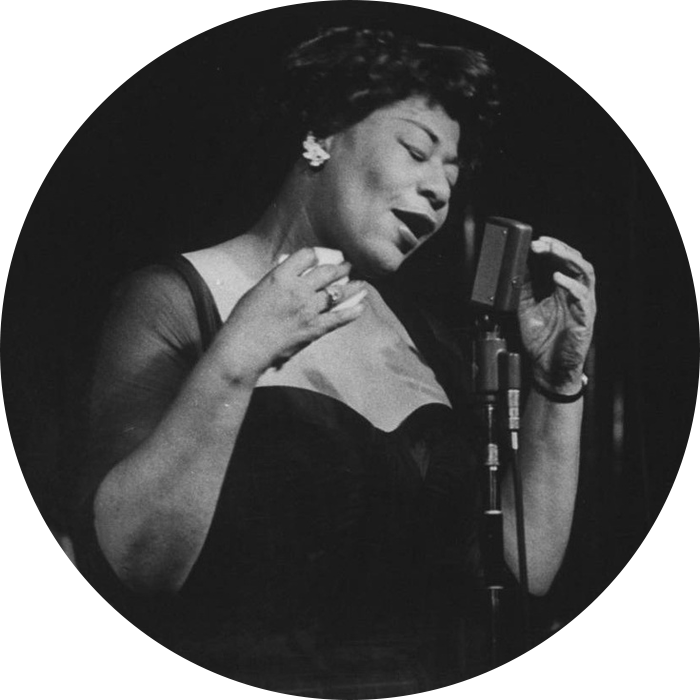American jazz singer Ella Fitzgerald (1917-1996), nicknamed ‘The First Lady of Song’, overcame a difficult childhood marked by poverty and the early loss of her parents. Discovered at an amateur competition at Harlem's famous Apollo Theater, she quickly rose through the ranks of the jazz scene. Blessed with an exceptional voice with a range of three octaves, Ella excelled at scat, a vocal improvisation technique. Over the course of her career, she sang and recorded in almost every jazz repertoire, from swing to bebop to bossa nova. She has collaborated with some of the greatest names in jazz, including Louis Armstrong, Duke Ellington and Count Basie. Her interpretation of the Great American Songbook, a series of albums devoted to the great American composers such as Cole Porter and George Gershwin, has helped to preserve this classic repertoire. Confronted with the pervasive racism of her time, Ella broke down many racial barriers in the entertainment industry. Towards the end of her career, although her voice had lost its suppleness, she continued to perform, inspiring a new generation of singers. One of her last great recordings, ‘Ella in London’ in 1974, is a testament to her immense talent and ability to captivate audiences. Ella Fitzgerald's legacy in the world of jazz and popular music remains unrivalled, and her influence extends far beyond jazz.


